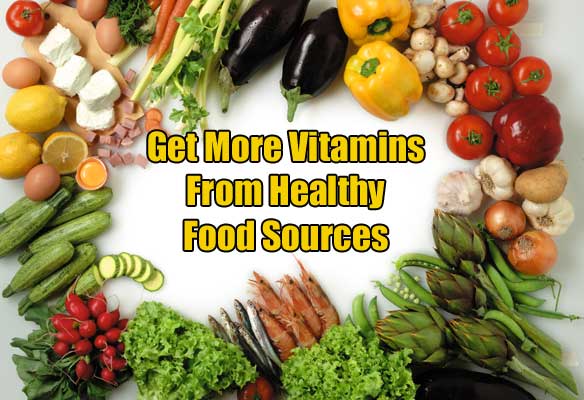 Healthy eating is all about eating foods that are full of the nutrients that we need for thriving health. That is even more important when you are trying to lose weight and foods full of empty calories. There are a couple nutrient sources that almost everybody is familiar with. Whether it’s Vitamin C from an orange, potassium from a banana, or calcium from milk, these sources are pretty common knowledge. What’s important to remember is that there are dozens of other health sources out there that supply the healthy vitamins we need and simple ways to maximize the efficiency of these foods supplying our system.
Healthy eating is all about eating foods that are full of the nutrients that we need for thriving health. That is even more important when you are trying to lose weight and foods full of empty calories. There are a couple nutrient sources that almost everybody is familiar with. Whether it’s Vitamin C from an orange, potassium from a banana, or calcium from milk, these sources are pretty common knowledge. What’s important to remember is that there are dozens of other health sources out there that supply the healthy vitamins we need and simple ways to maximize the efficiency of these foods supplying our system.
Vitamin B12 and B6
Vitamins B6 and B12 share some significant similarities in both how your body obtains them and also how it processes them. These B vitamins as well as folates (folic acid) are very essential to nerve cell functions. With a proper supply of blood rich with these vitamins and oxygen running through your nerves you’ll have better learning, memorizing and focusing abilities. A proper amount of these B vitamins is 1.3 for B6 and 2.4 for B12 in terms of milligrams per day. These vitamins found in supplements, fortified cereals (up to 100% of daily value), meat, spinach, and seafood such as yellowfin tuna.
Vitamin C
Vitamin C is one of the vitamins that our body needs the most of, up to 90mg per day in adult males and 75mg a day for adult women for the minimum with some individuals consuming up to 3,000mg. Many people pop Vitamin C pills at the first sign of almost any ailment from an oncoming cold. Vitamin C definitely boosts the immune system but also has antioxidant properties for cancer defense, cataract prevention, lowered heart disease risk, and even increasing sperm count in smokers (just an fyi). Fruits are an excellent source of Vitamin C because they can be eaten in their natural state and don’t lose any potency when cooked. Potatoes and supplements can be substituted for those not fond of fruits.
Vitamin D
Vitamin D is most commonly associated with bone and teeth strength but the benefits are much more astounding. It’s suggested that you get 200-400 IU per day. For instance, Vitamin D helps to lower the risk of multiple sclerosis, heart disease, flu, and can help lower blood pressure. Vitamin D deficiency can be especially damning to your bones and makes osteoporosis that much more likely. The amount of Vitamin D needed by a person per day varies on an individual basis but the best way to acquire the resource is by spending time in the sun. If your schedule or climate doesn’t permit it, take D supplements or buy food fortified with the vitamin such as milk, yogurt, orange juice, salmon, tuna, eggs or fortified whole wheat cereal.
Calcium
Calcium is your body’s most common mineral and employs a wide range of functions. Calcium is required daily because it’s lost through the hair, skin, nails, sweat, and waste and experts recommend at least 1000 to 1200 milligrams per day to replenish the supply. Having adequate calcium resources helps to prevent osteoporosis, lose weight, stave off PMS, and possibly deter cancer, diabetes, and high blood pressure. Plain yogurt, cheese, milk, black eyed peas, nuts, sesame seeds, tofu, and leafy greens like spinach are all good sources of calcium.
Vitamin E
It’s not that E is the creepy uncle of the vitamin world, it’s just that the mineral doesn’t get as much notoriety as it’s sister supplements. Some people see it more as something that affects the skin and nails more than something to be included in your diet, but it is a key nutrient. 15 mg per day is suggested for adults. Vitamin E promotes healthy skin, healthy cells, good circulation, and helps with healing from sunburn and reducing scars. Vitamin E also helps moisturize the skin for treatment and anti-aging methods. Vegetable oils are a great source of Vitamin E, as are nuts, avocado, seeds, green vegetables and fortified foods like cereals, fruit, and butter.
Iron
Iron deficiency is a large health scare so adequate levels should be maintained by eating rich foods like healthy meat (turkey and chicken livers included), egg yolks, beans, liver, tofu, prunes, pumpkin, artichokes, and leafy greens. Adults should shoot for about 18 mg per day, but if you have anemia or a deficiency you’ll need to have blood tests to confirm how much iron you need per day in the form of a supplement.

Comment Via Facebook